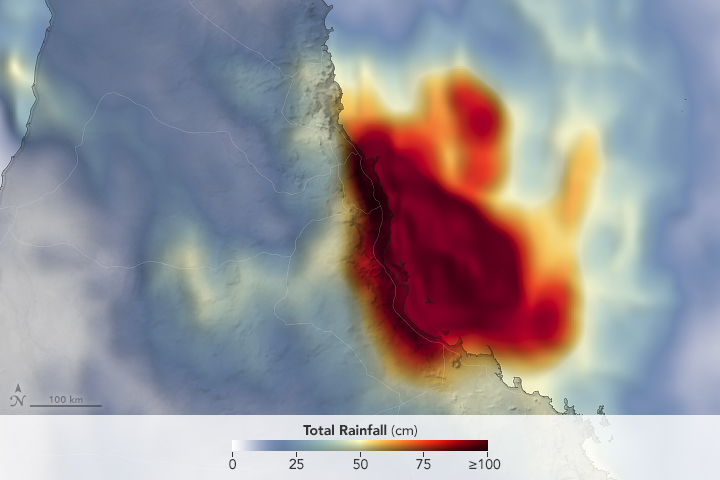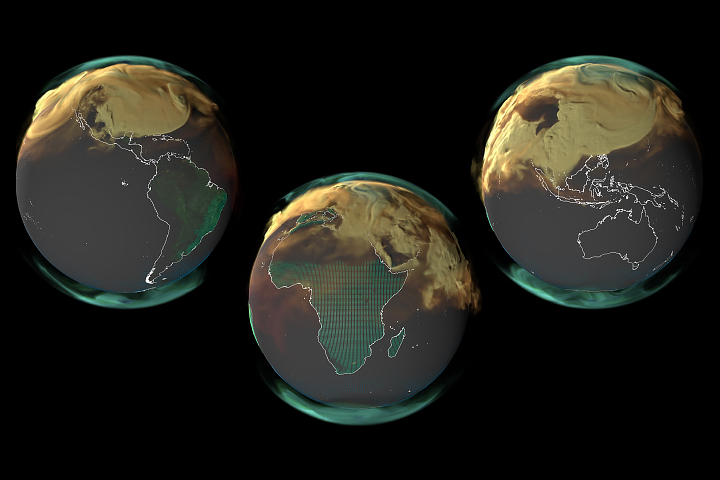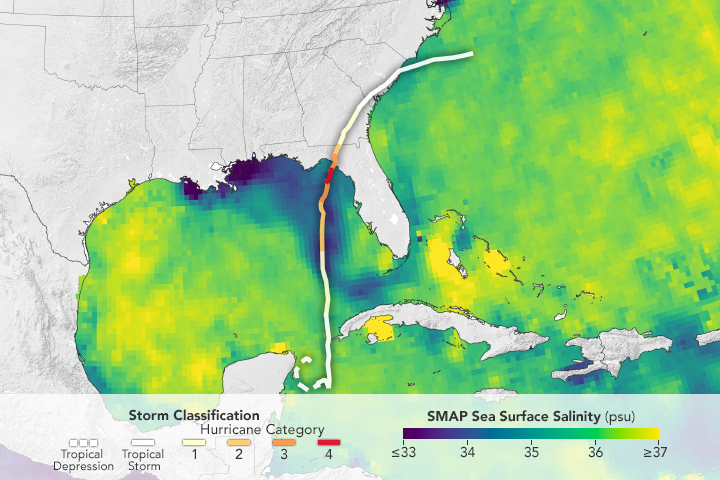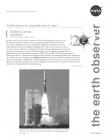



Recent Imagery
You will be directed to the NASA Visible Earth webpage when you select Images by Mission below, or click on the images at right that are randomly generated to represent four out of all possible topics.
The Earth Observer has a new look! Visit the NEW Earth Observer website.
The Earth Observer: Jul - Aug, 2009
In This Issue
Click title below to view page
- Editor’s Corner Front Cover
- Feature Articles
- EOS Data and Information System (EOSDIS): Where We Were and Where We Are, Part I4
- Operation Ice Bridge: A Journal of My Expedition to Greenland12
- HITRAN: A History20
- NASA “Treks” to Iowa for Problem-Solving Competition22
- Meeting/Workshop Summaries
- NASA’s contribution to the Group on Earth Observations (GEO) Global Agricultural Monitoring System of Systems24
- NASA LCLUC Spring Science Team Meeting Summary30
- CERES Science Team Meeting Summary34
- In The News
- First Take: Data Users Line Up to Give On-Camera Earth Observation Testimonials38
- South Carolina Wildfire Offers Langley Researchers Close-up Look at Smoke40
- NASA, Japan Release Most Complete Topographic Map of Earth42
- Satellites Guide Relief to Earthquake Victims43
- Regular Features
- EOS Scientists in the News44
- NASA Science Mission Directorate—Science Education Update46
- Science Calendars47
Editor’s Corner
Steve Platnick, EOS Senior Project Scientist – Acting
On June 22-24 the Earth Science Division of NASA’s Science Mission Directorate and the National Academy of Sciences hosted a symposium called NASA Earth System Science at 20: Accomplishments, Plans, and Challenges (ESS@20) that took place at the National Academy of Sciences building in Washington, DC. This event was a chance to focus on the past, present, and future of Earth System Science. The meeting featured a retrospective on the twenty-year history of the Earth Observing System (EOS) Program that began with the publication of the landmark Bretherton report in 1988. It also included a look ahead to the future of Earth System Science, with particular emphasis on the importance of maintaining satellite data continuity in the coming years. In his closing remarks, Ralph Cicerone, President of the National Academy, noted the importance of interagency collaborations in addressing climate and other Earth Science issues, and stressed that effective outreach and communication are key complements to all Earth Science research. A summary of the symposium is...
Read more...

